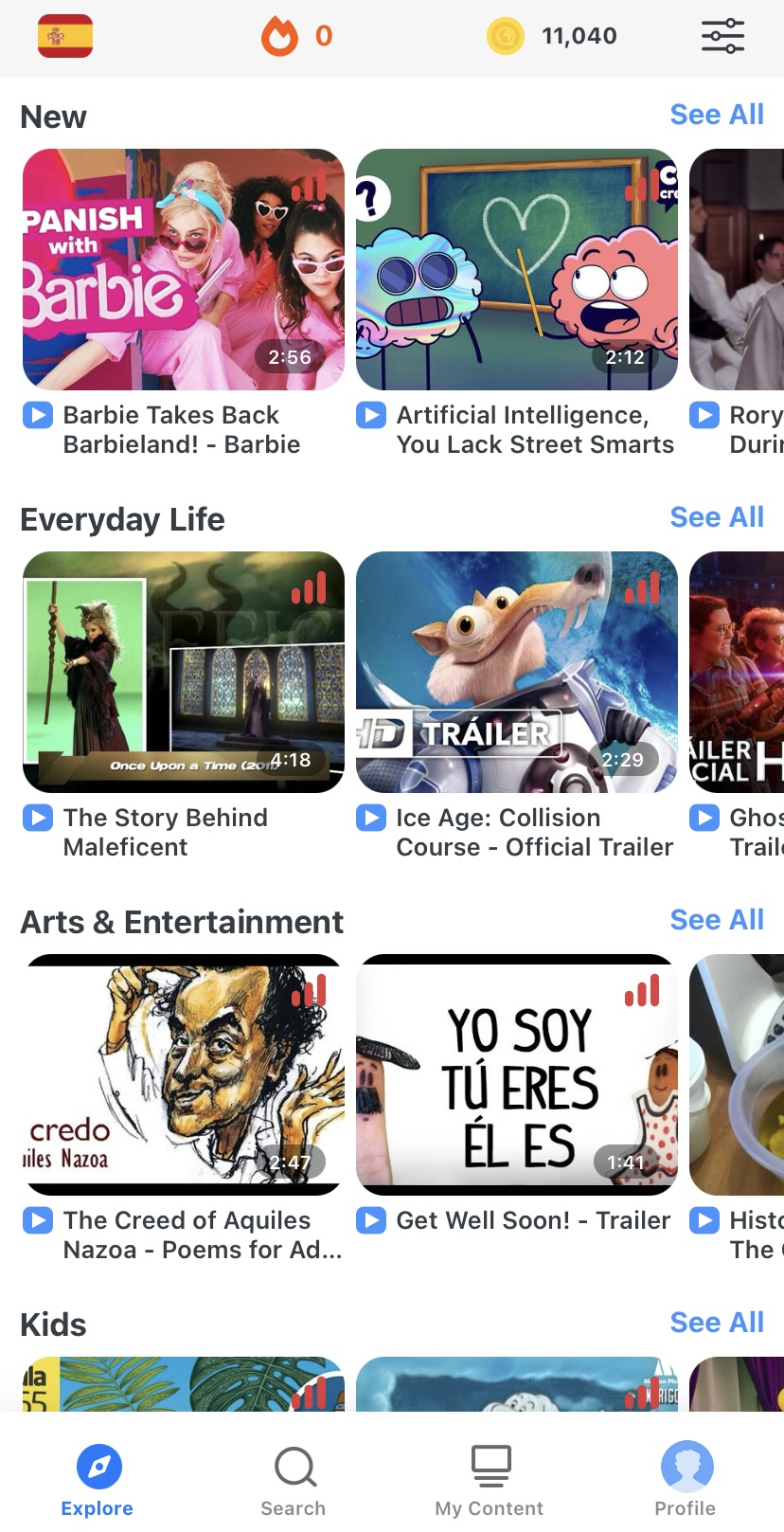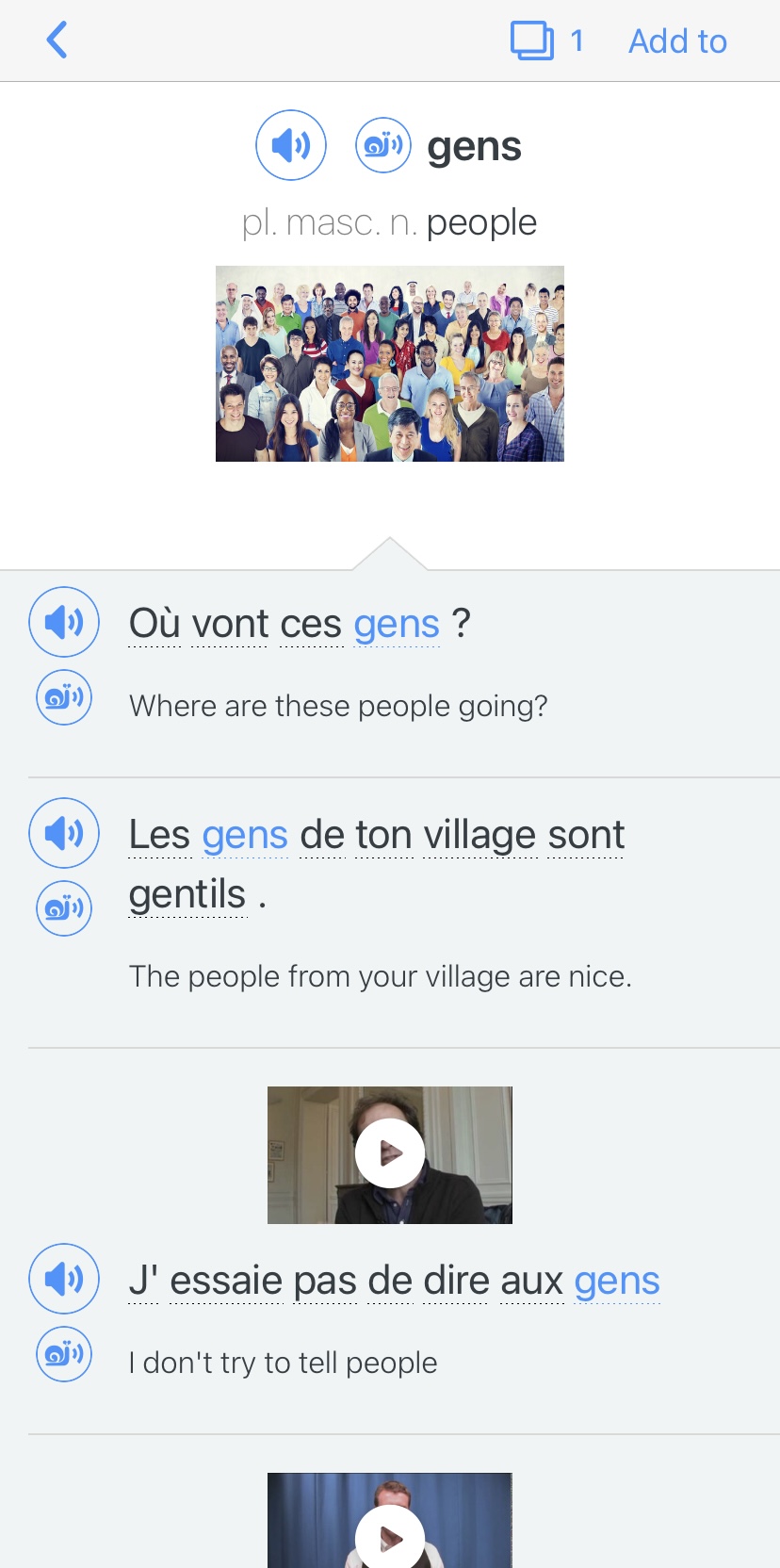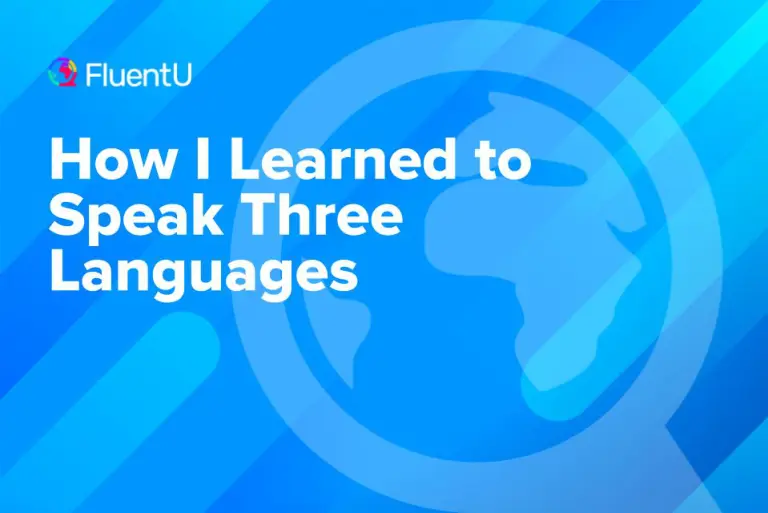Contents
- 1. You’re Not Making Learning Fun
- 2. You’re Not Using the Right Approach for You
- 3. You’re Plateauing at One Level
- 4. The Language You’re Learning is Exceptionally Hard
- 5. You Have Fewer Advantages When it Comes to Language Learning
- 6. You Don’t Have the Motivation
- 7. You Lack Clear Goals
- 8. You’re Scared
- 9. You’re Just Not Using it Enough
- The Importance of Identifying Why You Feel You’re “Bad at Languages”
- And One More Thing...
Why Learning a Language is So Hard and How to Overcome It

So, I’ve been in your shoes, wondering why I can’t learn a language. Am I not as smart as other people? Am I doing everything wrong and wasting my time? Firstly you need to get out of your own head and remember that anyone can learn a language—it’s science.
There are literally millions of people walking this earth with multiple languages under their belt, and they’re not all geniuses. They’re just the people who kept going, kept practicing, kept gaining more and more exposure to languages. I’m going to walk you through 9 different struggles I’ve had while trying to learn a language, and how I’ve overcome them.
Download: This blog post is available as a convenient and portable PDF that you can take anywhere. Click here to get a copy. (Download)
1. You’re Not Making Learning Fun
When learning feels like a chore, you’re likely to put it off, disengage or just stop altogether.
No one wants to be bored! But there’s a problem: Some language learning tasks are less exciting than others.
Language learning isn’t all glamorous trips abroad.
Sometimes, you’ll need to study vocabulary, even if you don’t feel like it. Sometimes, you’ll need to read up on a tricky grammar rule. Sometimes, language learning can seem like a real drag, and that can hold you back from improving your skills like you want to.
Solution: Make learning into a game.
One way to make learning fun is to make it into a game, which will be even more fun with language learning friends.
If you don’t know anyone studying your target language, find language learning friends online!
You can find like-minded friends on the Language Learning subreddit or a language learning Facebook group.
To make learning a game, challenge your friends. Set a goal, and see who can meet it the fastest.
For example, compile a list of vocabulary words you want to memorize. Whoever has them down pat first wins.
If you don’t have a friend studying your target language, you can still complete the same challenges alone and gain a self-competitive streak.
Tandem Review: Well Designed Language Partner App Feels Tinder-esque but Helps Learners Connect | FluentU Language Learning
Read our full Tandem review if you’re ready to dive into the world of online language exchange. Before you take the plunge, take a look at this Tandem review to find out…
2. You’re Not Using the Right Approach for You
Does learning style really matter?
Absolutely.
One study suggests that considering factors like preferred learning style, learning needs, objectives and beliefs is vital if you’re learning a language independently.
So if you’ve just jumped into learning without careful consideration, it could very well be that you’re not using the right approach for you, and that’s holding you back.
Solution: Try multiple approaches at once.
Set aside a few hours to test various interesting approaches and programs.
Jot down notes on what you like about each program, what you don’t like and in what ways it might help you meet your goals.
Once you have a firm idea about what each approach offers, you’ll have a clearer idea about what might work for you. In the end, hand your favorite a rose (or subscription, as the case may be).
Consider it like “The Bachelor: Language Learning Edition.”
The 12 Most Effective Strategies for Learning Any Language | FluentU Language Blog
Looking for a language learning method that actually works? From setting effective goals to making practice a regular habit, there are many ways to improve your progress.…
3. You’re Plateauing at One Level
Language plateaus are a real thing, and they can be daunting.
Early on in language learning, students tend to learn more quickly. It’s new, it’s exciting and there’s so much valuable information out there.
But after studying for a while (usually around the intermediate level), learning tends to plateau.
You already know all the essential terms and grammar rules, so moving forward can seem tricky. You might feel like you used to be good at learning languages but are suddenly failing.
Plateaued students face similar lingering language problems, including limited vocabulary, speaking difficulties, fossilized errors (persistent errors), overly simplistic wording and sounding unnatural.
Language Learning Plateaus and 8 Ways to Get Unstuck | FluentU Language Blog
Hit a language learning plateau? Feel like you’re just not progressing anymore? From assessing your current level, to setting realistic goals and trying new methods, these…
Solution: Interact with native speakers.
Interacting with native speakers is one of the few solutions that can address all the major issues students who have plateaued usually face.
Your vocabulary will naturally expand based on what you want to talk about.
The more often you talk, the more you might mirror your conversation partner’s style, correcting your overly simplistic wording.
Talking to a native speaker can also improve your speaking skills and make you sound more natural.
If you find a friend who’s comfortable pointing out your faults, they can even help identify consistent errors you can correct.
4. The Language You’re Learning is Exceptionally Hard
Some languages are definitely harder to learn than others.
If you’re learning a language with a significantly different structure than your native language, it might be exceptionally challenging.
Solution: Consider studying an easier language first.
It can be tempting to dive in full force with a particularly challenging language, but instead, you might consider studying an easier language first.
This can help you build the skills you need as a language learner.
You’ll learn what methods work for you, what you need to do to accomplish your goals, and how to stay motivated.
Once you’ve learned an easier language, you can revisit the more complicated language. With your new learning skills, you might find it much easier than when you first tried to learn it!
Solution: Use self-testing to memorize words faster.
Language learners (especially of difficult languages) often have problems with memory. This is what made those darn grammar tables so difficult.
The solution? Test yourself.
By quizzing yourself overtime on new information, you solidify that knowledge in your mind.
Use a spaced repetition system (SRS) to rev up your memory further. You’ll no longer have the excuse that your memory just isn’t made for foreign languages. An SRS flashcard program uses an algorithm based on how quickly human memory forgets information.
The Guide to Effective SRS Language Learning | FluentU Language Learning
Spaced repetition software lets you easily put new vocabulary into your long-term memory. Click here to learn what exactly it is, how it works, three of the best SRS…
You can download apps like Anki or Mnemosyne to start using SRS. (Read our full Anki guide here.)
What if you’re a low-tech sort of person?
Well, you can use word lists the same way. Check out the Iversen method—Iversen is an accomplished polyglot, and he’s decidedly a paper-and-pencil language learner, so let him inspire you.
5. You Have Fewer Advantages When it Comes to Language Learning
There are a lot of factors that can put you at a bit of a disadvantage.
One study suggests a correlation between a strong phonological memory and language learning.
Another study suggests that “intrinsic functional connectivity within the language network” of the brain can be a significant contributing factor in adult language acquisition, which basically means that some brains are better wired for language learning than others.
Another scholar goes so far as to suggest that hyperpolyglots (people who speak more than 11 languages) are members of a “neural tribe,” which is a group bound by a particular undertaking, a base of identity related to it and different “neural hardwiring” that helps them succeed.
In other words, people who are exceptional at learning languages may have exceptional brain differences.
Despite all the research, it’s unclear what causes these differences since causation is challenging to pinpoint. There’s no telling whether people with these advantages were born with or got them.
Solution: Learn to enjoy challenges and consider solutions to improve retention.
Learning a language may be challenging, but that doesn’t mean you need to be held back because you don’t have as many learning advantages as others.
Recognizing that learning might not come as easily for you as some of your friends can be beneficial if it helps you take some pressure off yourself, but that doesn’t mean you have to stop.
Put in the work and you’ll reap the rewards, even if it takes a little extra time. No one runs a marathon because it’s easy—sometimes you need the challenge to drive you forward.
And there’s no reason to feel bad if it takes a little while to succeed.
If you need an extra leg up, though, you might try strengthening your short-term memory to prepare it for language learning, and there are plenty of simple ways to do so.
https://www.fluentu.com/blog/learn/how-to-memorize-words-in-a-foreign-language/
6. You Don’t Have the Motivation
Motivation can impact a vast array of traits that aid in language learning.
Motivation can lead students to interact more with native speakers and use learning strategies. Motivation can also correlate with students’ performance on achievement and proficiency tests.
So if you’re struggling to figure out how to learn a language, you might want to take another look at why you’re doing it.
Solution: Keep your motivation right in front of you.
Once you’re deep into grammar rules and vocabulary lists, it can be easy to forget the real reason you’re learning a language, so keep your motivation right in front of you!
10 Strategies for Language Learning Motivation and Avoiding Procrastination | FluentU Language Blog
The language learning motivation can be hard to find, but these 10 tips will keep your motivation high throughout your language learning journey! From making a language…
One way to do this is keeping a motivation journal.
Set aside a few minutes each day to write about why you’re learning your target language and what this new skill means to you.
Once your language skills improve, you might write about your motivation in your target language for a little extra practice.
Keep your journal handy. The next time you feel demotivated, read through what you wrote to give yourself the drive to press forward.
Another way to motivate yourself is to put a poster in your study area.
Maybe it will show a travel destination you hope to visit. Maybe it will show something related to your intended career field that you want to use your target language in.
How to Organize Your Foreign Language Notebook | FluentU Language Blog
A foreign language notebook can help you keep all that new language knowledge in your noggin! From choosing a notebook to setting it up to filling it, here are 9 tips to…
7. You Lack Clear Goals
If you don’t have goals, you don’t have direction. If you don’t have direction, it’s tough to make progress.
Without goals, a casual language learner might pick up a few words here and there but is unlikely to make any real, noticeable strides forward, creating the illusion that they can’t learn languages.
Solution: Set long- and short-term goals with predetermined rewards.
Consider your long- and short-term goals.
For example, if your long-term goal is to be able to interact with native speakers in your target language comfortably in six months, you’ll need to figure out short-term goals to reach this.
You might study and practice 10 vocabulary words daily or use your favorite learning resource for 20 minutes daily.
Whatever your goal, be as specific as possible so that you can assess whether you’ve met your goal.
Then, keep track of your goals somewhere you’ll see often so that you remember exactly what they are. You might even add them to your phone’s calendar and set reminders to ensure you meet all your goals.
The final step is fun: Reward yourself for meeting your goals.
For your daily goals, consider something relatively small. For instance, a spoonful of Nutella can be a tremendous motivator.
You might set increasingly large rewards for long-term goals, such as a trip abroad once you can watch your favorite Netflix show in your target language without subtitles.
How to Set Realistic Language Learning Goals | FluentU Language Learning
Language learning goals are like maps. They can give you a quick glance of where you are, where you want to be and how you can get from Point A to Point B. But what’s the…
8. You’re Scared
Foreign language anxiety is real, and it can jeopardize your ability to learn a language.
You miss valuable practice if you’re afraid to use your language skills. If you miss valuable practice, you don’t progress as quickly. It’s a vicious cycle.
Solution: Be aware of your feelings and work to build up your confidence.
You could increase your confidence by practicing affirmations to remind yourself of how capable you are. Repeat after me: “I am a capable and skilled language learner.”
It’s okay to be anxious, but be mindful of your feelings and why you feel this way. Not only could this self-awareness reduce your overall stress, but it could also help you find ways to work around your anxiety.
For example, you might build confidence in your target language to overcome your anxiety.
To do this, consider using an interactive resource that gives you speaking practice, too. Some programs that incorporate speaking practice include Mondly and Mango Languages. (We have an in-depth Mondly review and Mango Languages review.)
I also recommend finding resources that show how a language is used in different contexts. An example of such a resource is FluentU. This can boost your comfort level so that speaking it in real life won’t be so intimidating.
FluentU takes authentic videos—like music videos, movie trailers, news and inspiring talks—and turns them into personalized language learning lessons.
You can try FluentU for free for 2 weeks. Check out the website or download the iOS app or Android app.
P.S. Click here to take advantage of our current sale! (Expires at the end of this month.)

9. You’re Just Not Using it Enough
If you’ve studied a language extensively but haven’t used it much, you might feel like all your studies have failed you when you finally try.
Well, that’s probably not true… you likely don’t have enough practice actually using your skills.
Solution: Immerse yourself!
Do whatever it takes to get more experience using your target language.
If there are native speakers in your community, frequent the same places as them.
Better yet, try to get a part-time job at a business where native speakers congregate. This can give you the speaking and listening practice to learn the language more thoroughly.
Even if there aren’t native speakers near you, there are still plenty of ways you can overcome the obstacle of not using the language.
For example, think in your language. When your mind drifts at work or school, only allow it to do so if you’re thinking exclusively in your target language.
You could also enjoy authentic media, like the excellent movie and TV options on Netflix.
Regardless of your choice, using your target language more often will help you prove to yourself that you can learn a language.
How to Learn a Language by Watching TV and Movies | FluentU Language Learning Blog
Learn a language by watching TV and movies with the help of this ultimate guide! Explore 15 unique strategies, from choosing shows based on their genre to having…
The Importance of Identifying Why You Feel You’re “Bad at Languages”
- You can remove the stigma of your perceived failures. Failure can sting and make you feel like you’re incapable. But you won’t have to feel bad if you identify your obstacle because there’s nothing wrong with you but something in your learning approach.
- You can work to correct your problems. Whether you’re stuck on a language plateau or are simply using the wrong language learning style for you, knowing why you’re struggling gives you a clearer idea of how to solve your problems.
- It gives you the motivation and direction to try again. Once you can look what’s vexing you in the face, you get the extra motivation and direction you need to give it another go. No need to let scary problems hold you back! With the right motivation and direction, even the hardest languages can seem like easy languages.
So if you think you can’t learn a language, think again.
Once you identify your obstacles, you can get back on the road to fluency!
Download: This blog post is available as a convenient and portable PDF that you can take anywhere. Click here to get a copy. (Download)
And One More Thing...
If you're like me and love learning languages through real-world content, FluentU is a game-changer. With FluentU, you're not just memorizing words—you’re learning how native speakers actually use them.
With our newest feature, you can now bring FluentU’s interactive tools to any subtitled content on YouTube or Netflix—or even import YouTube videos directly into your FluentU account!
You’ll also get access to a huge variety of content in our curated video library, from movie trailers to news clips, music videos, and more. The best part? FluentU makes this native-language content accessible for learners of all levels.
While you watch, you can tap on any word in the interactive subtitles to see a definition, an image, audio, and useful example sentences. Want to practice new words later? Add them to your flashcards with one click. No more pausing to look up and write down new words!
And FluentU helps you actually remember what you learn with personalized quizzes, plenty of example sentences, and extra practice with the words you find difficult.
Ready to start learning in a more natural, immersive way? Try FluentU on your computer or tablet, or download the FluentU app from the App Store or Google Play. Click here to take advantage of our current sale! (Expires at the end of this month.)








